Tell us a bit about yourself and what you do
I am a ceramicist from Raleigh, North Carolina that has been living in Chicago for the past six years. My practice explores my identity through the creation of hybridized Korean ceramics. I navigate the complexity of my identity through subverting expectations of material authenticity and centering conversation around the culture of food.
In Choa mag you said that you want to make “art that feels like home.” Tell us a bit more about what that means to you.
For a while, when I was in college and before, I was making artwork about some of the worst experiences of my life; being bullied, being ostracized by my own communities. I realized that this kept me reflecting on my depression and that I would not be able to sustainably continue making art if I were to continue. So I began focusing on making art about joyous memories of my childhood. Myths and fables resurfaced to my memory, and I started to think about what art I would have loved to see when I was a child. In some ways, my artwork creates a home for my inner child that I never had, one where all facets of my identity are safe at once.
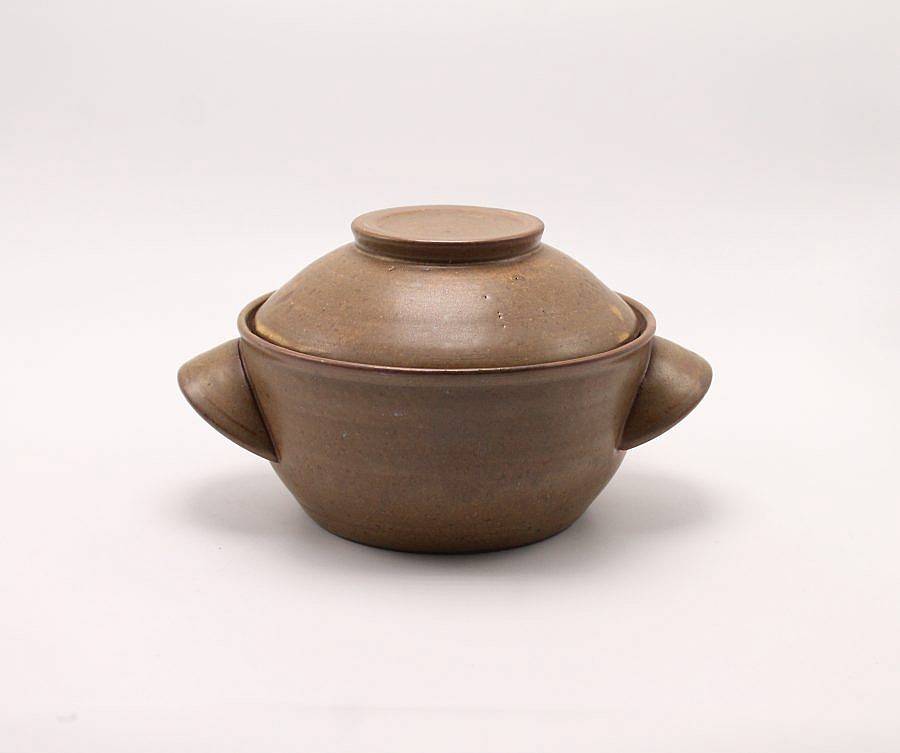
At the time of writing this, you just left Ox-bow. How has your time been so far? What have you been working on?
I just left my residency at Longform. My time there was absolutely magical. I am filled with love for all my co-residents and hope that our strong connection will last for years to come. While I was there I worked on a set of teapots that look like luxury fruits. I am trying to explore, in a lighthearted way, this idea of competition that I feel like is so inherent in Korean culture. I also made a few mirrors which I am very excited about that delve into my hope that Korea will be reunified and the myth of how the Rabbit came to be on the moon. If you are wondering what a luxury fruit is, please go look them up, they’re so funny and beautiful.
How has teaching ceramics affected your practice? What have you learned through teaching?
Teaching ceramics has greatly affected my practice because I have learned a lot of specific techniques in order to adjust my lessons to fit my students’ needs. In this way, I have often been pushed out of my comfort zone in ways that I never expected. I’ve learned that adults often hate receiving compliments and that kids love them.
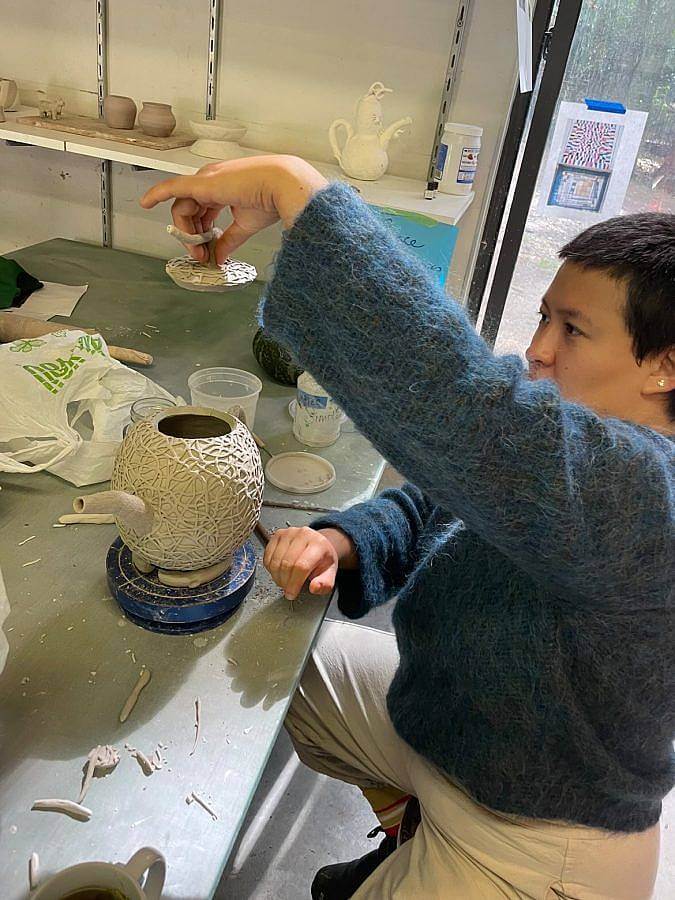
What are some of your favorite exhibitions you’ve seen recently?
Nick Cave: Forothermore at the MCA. It is hard to put into words what his work means to me, but that show was a breath of fresh air. He has a remarkable ability to use specific visual language in order to convey feelings that are difficult to sum up with words. He has been one of my favorite artists since I was fifteen years old.
What has been influencing your work lately? Who are some artists you’ve considered influences?
Recently I have been influenced a lot by conversations I have been having with friends about their childhood memories and their relationships with their siblings. Some artists I have considered influences are Cory Feder, Salvador Jiménez-Flores, Momoko Usami, Mika Rottenberg and Gloria Han.
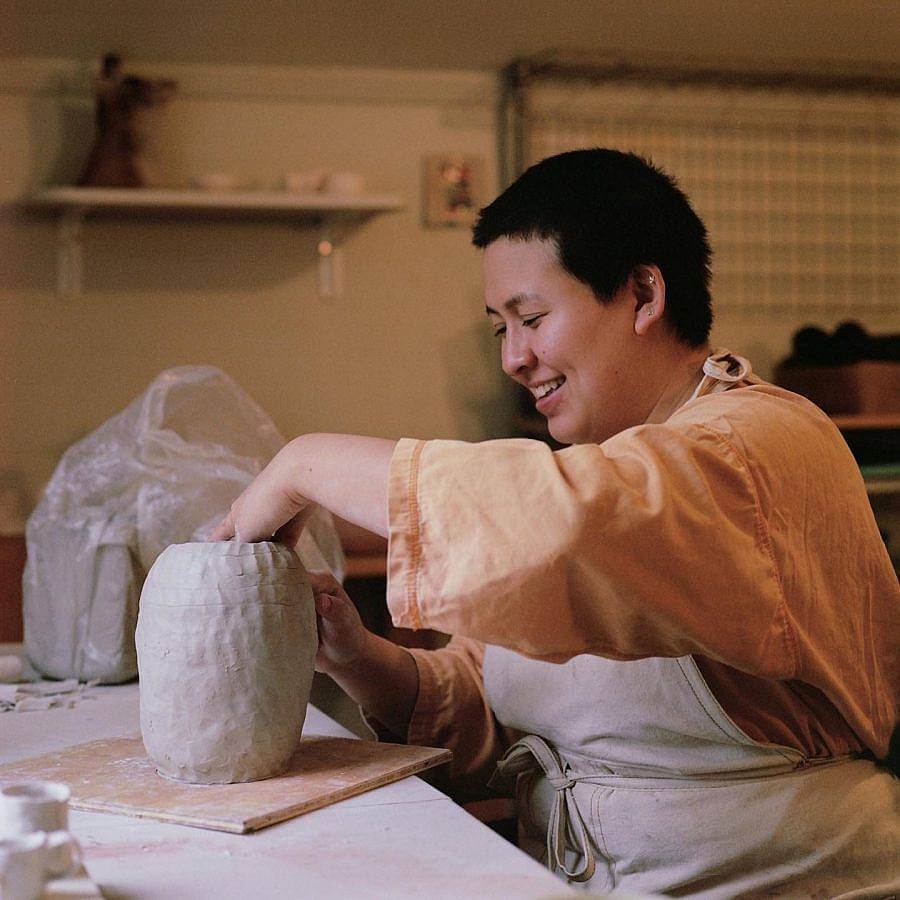
How does the functionality of an object inform your process when making?
I love creating pieces that have the potential for function. It is magical when an object can perform, as if it has intellect or feelings of its own. The function of whatever I’m creating can influence the concept and form of my piece. I like to play around with creating ceramics that leave viewers wondering if they have function or not. This type of subliminal trickery makes me laugh.
Any movie recommendations?
I just watched The Fly for the first time and I was surprised by how much I liked it. I always recommend Best in Show to whoever hasn’t watched it and since it is spooky season I think it’s always good to add in What We Do in the Shadows.
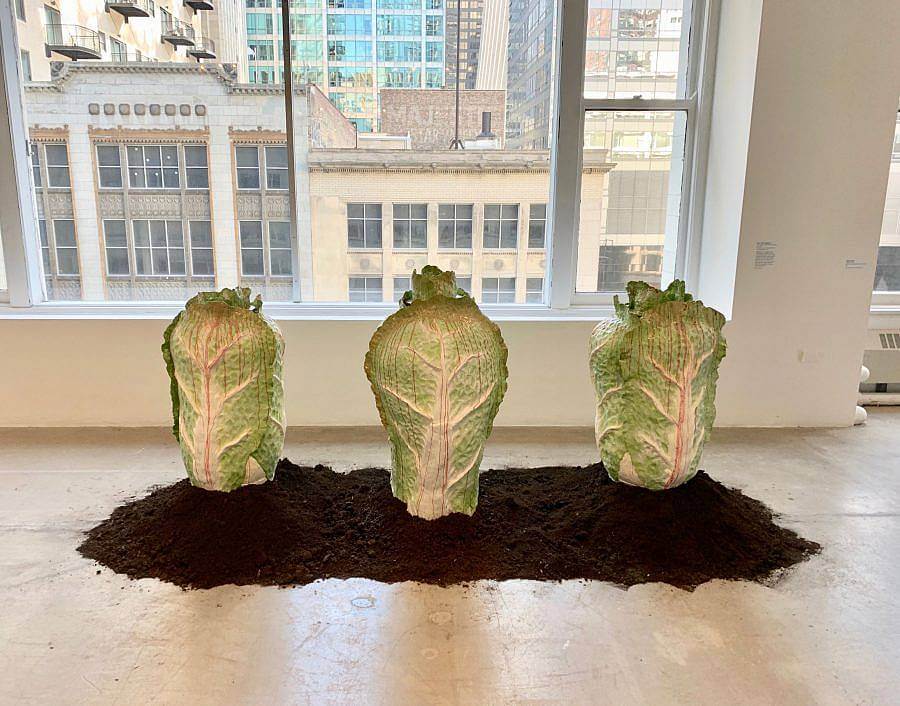
In your bio you say that you analyze your relationship with your ancestry through twisting standards of materiality. Tell us a bit more what that means to you.
I really love to push the idea that whatever you touch and create is transformed by your ancestral history. I honor this idea by taking a traditional form and using a different technique of creating texture or finished glaze on the surface. By subverting tradition in my ceramics I dwell upon how my existence in itself subverts tradition, and yet both are valid and authentic.
What’s your go to studio snack?
Salt and vinegar chips or Flaming hot fries, aloe juice, and any cut up fruit (pear, mango, papaya) with tajín and a single chopstick to use as a skewer.
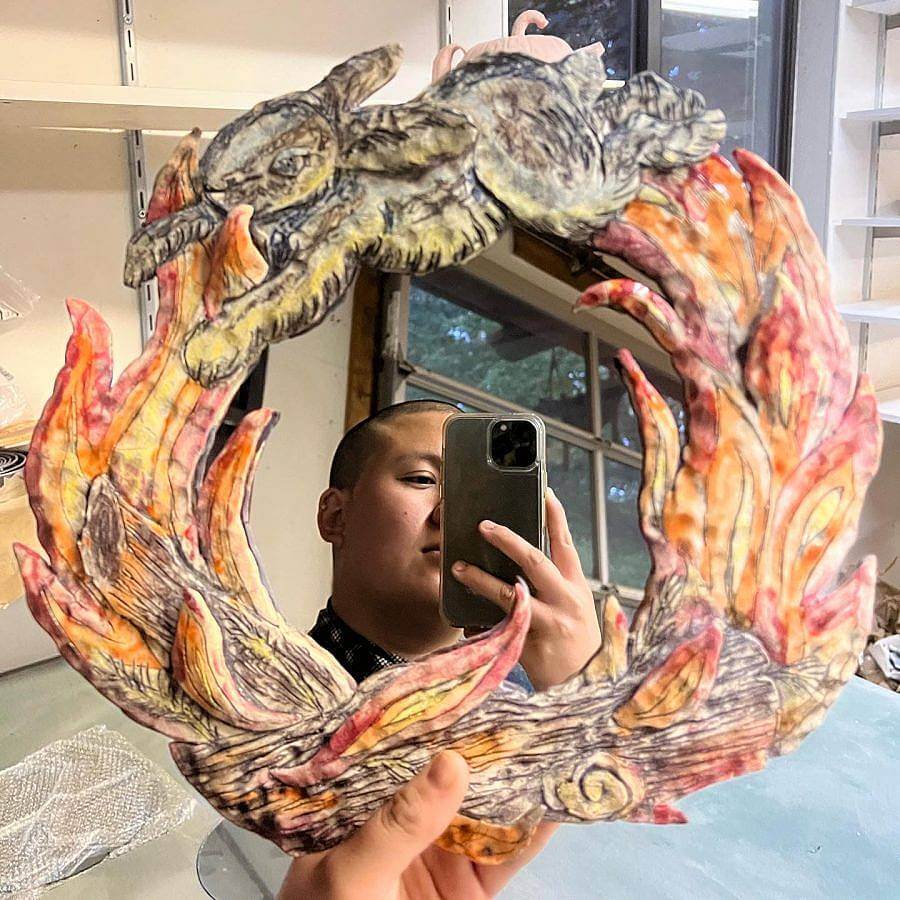
What have you been reading lately?
I have been reading Naked by David Sedaris recently. He is very funny, but there is a deep sadness in his writing about his family that I relate to.
Interview Conducted by Lee Schulder, and drafted by Milo Christie
